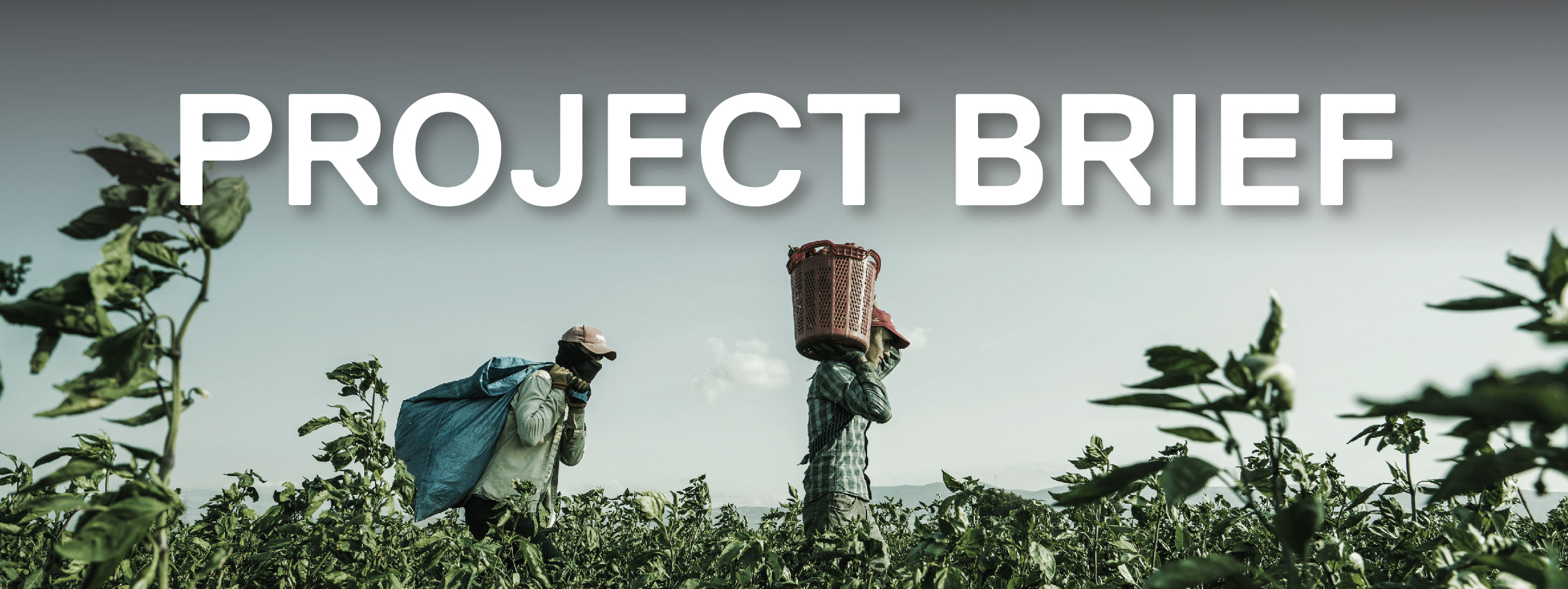Migrants' Protests (Mig. Pro): The impact of migrant farm workers' protests on borders of citizenship


The overall objective of this research project is to provide new insights on the theorization of political subjectivities and citizenship. Specifically, the project will examine the role that social sciences, policymakers, and citizens and non-citizens alike have in defining what 21st-century citizenship is in inclusive Europe, as well as in Canada. To achieve this, Mig.pro aims to explore migrant agricultural workers’ and their allies’ networks, agency and grassroots struggles to be granted fundamental human rights and decent living and working conditions. The project will look at everyday forms of protest, resistance and mobilization in two different countries: Canada and Italy. Particular attention will be paid to migrant women agricultural workers, who often face intersecting forms of exploitation yet persevere through their agency and everyday resistance.

What can the study of every-day resistance and grassroots movements by migrant agricultural workers and their allies bring in terms of new perspectives to be considered empirically and theoretically by social movement, migration and critical feminist studies?
- Further subquestions will be developed for each context during the preliminary consultative phase with participants.

Existing international research shows an historical global trend in super-exploitative practices for migrant agricultural workers. Yet, while structural and systemic living, working condition and super-exploitation has gained attention in academic research over the past decades, the voice, agency and protests activated by migrant agricultural workers’ as well as by their supporters remains under considered. In Canada, the migrant workforce in this sector comprised nearly one-quarter of all agricultural workers in 2021. Women constituted, 8.4 % of migrant temporary workers in agriculture in 2020. Even though migrant agricultural workers include both legally authorized migrants entering under temporary labour migration programs, as well as migrants working without a work permit. Estimates claim that up to 2,000 “undocumented” workers are located in the Windsor-Essex farming region of Ontario alone. During his visit to Canada in 2023, the Special Rapporteur of the United States Prof. Tomoya Obokata declared Canada’s temporary foreign worker programmes “constitute a breeding ground for contemporary forms of slavery”.
The Special Rapporteur arrived at a similar conclusion, when she visited Italy in 2018. She said, “Labour exploitation is particularly prevalent in the agricultural sector. Of the approximately 1.3 million agricultural workers, some 405,000 are migrants with either a regular or irregular migration status”.
Moreover, the COVID-19 pandemic exacerbated racial inequalities, isolation, surveillance and health risks in similar ways in Canada and Italy for both status and precarious migrants working in agriculture.

In order to grasp specificities and complexities, the methodology has been adapted to each context. A triangulation of qualitative instruments will be used by assuming an intersectional and critical positionality inspired by situational analysis (SA) for the Canadian context and by participatory action research (PAR) for the Italian one. The following are foreseen for both Italy and Canada:
- Online ethnography on the main struggles, social movements for migrant agriculture workers’ rights
- Policy analysis
- Intensive fieldwork through participant observation
- Semi-structured interviews (15-25) with: stakeholders, policy makers, NGO representatives, migrants’ supporters, trade unions, service providers, activists both migrant farm workers and not.
- For the Italian context the direct involvement of migrant agriculture workers, as well as stakeholders, following PAR principles is foreseen.

The first stage of research: with a preliminary analysis of immigration and temporary programs/policies, consultative meetings, as well as a literature review is completed. The second stage is currently under review at Ca’ Foscari (Ethics Committee) while approval was received in April 2024 by the Research Ethics Board at Western University.
Publications:
The following works are published based on the literature review conducted for this project and field work:
- Perocco, F., & Shkopi, E., Travailleuses agricoles migrantes en Italie et au Canada: précarité, exploitation, violence, (Forthcoming in 2024, chapter in collected volume).
- Caxaj, C. S., Shkopi, E., Naranjo, C. T., Chew, A., Hao, Y.T., and Nguyen, M., (2023). Health, social and legal supports for migrant agricultural workers in France, Italy, Spain, Germany, Canada, Australia and New Zealand: A Scoping Review. Frontiers in Public Health, 11, 1182816. Doi: 10.3389/fpubh.2023.1182816
- Scarabello, S & Shkopi, E. (2023). Lost encounters? The time-scale temporalities involved in countering gang-master and labour exploitation policies. The Lab’s Quarterly. a. XXV / n. 2 – ISSN 2035-5548 | 1724-451X

Fall 2025

Host institution: Department of philosophy and cultural heritage, Ca’ Foscari Venice, Italy (external link)
Partner institution: Arthur Labatt School of Nursing, University of Western Ontario, Canada (external link)
Affiliation: Canada Excellence Research Chair in Migration and Integration
Visiting: Cosmos - The Centre on Social Movement Studies (external link) , Florence Italy (May –September 2024)

The Migrants' Protests project is funded by the European Union under the Marie Skłodowska-Curie grant agreement No. 101066659, Horizon Europe (external link) . Views and opinions expressed are however those of the author(s) only and do not necessarily reflect those of the European Union or [Research Executive Agency]. Neither the European Union nor the granting authority can be held responsible for them.

Migrants, legal status, every-day resistance, agriculture workers, interdisciplinarity, citizenship, borders, intersectionality, protests.
